Deal with the world as it is, not how you’d like it to be.
Jack Welch
What is Social Justice?
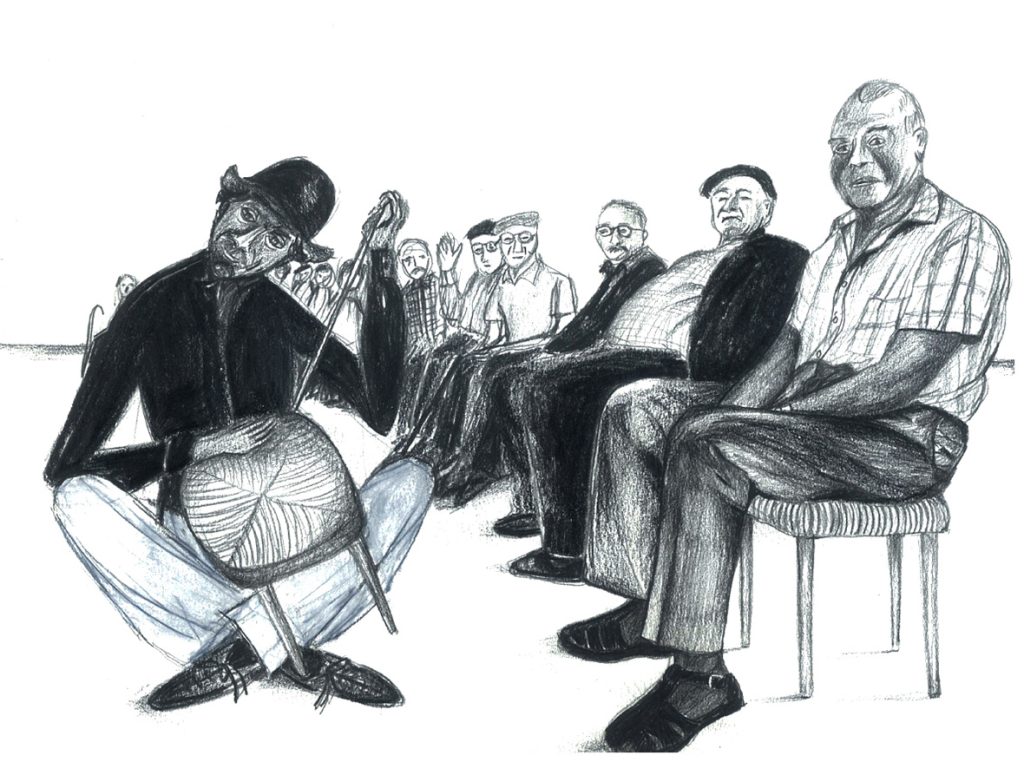
The Social Justice movement is a massive one. Its idealistic goals are a fair and equal treatment of all people, regardless of class, race, gender and sexual orientation.
Historically this was not the case. Poor, non-white, female and LGBTQ people were having a much harder time both in The Game of Self and The Game of Life. And despite better safety nets, a more tolerant society and anti-discrimination laws, they still do. Not to speak of all the mental and economic effects of generational injustice.
So this is it, case closed. Who can say no to fairness?
I’m afraid having a good core concept is not enough in a complicated world.
(Actually, the world is so complicated that the rest of this rant will be a bit US-focused to simplify. But many of these trends will hold for other developed countries too)
There are two main problems with how the social justice movement’s ideas play out in reality.
Problem one is that social justice is not entirely achievable.

The world is inherently unfair. Even if all people were 100% tolerant and 100% awesome, the world is still too random. People will never have the same opportunities… And the idea of controlling them so tightly that they do, runs contrary to human psychology and history and is dangerously similar to the failed-despite-multiple-tries destructive ideology of communism.
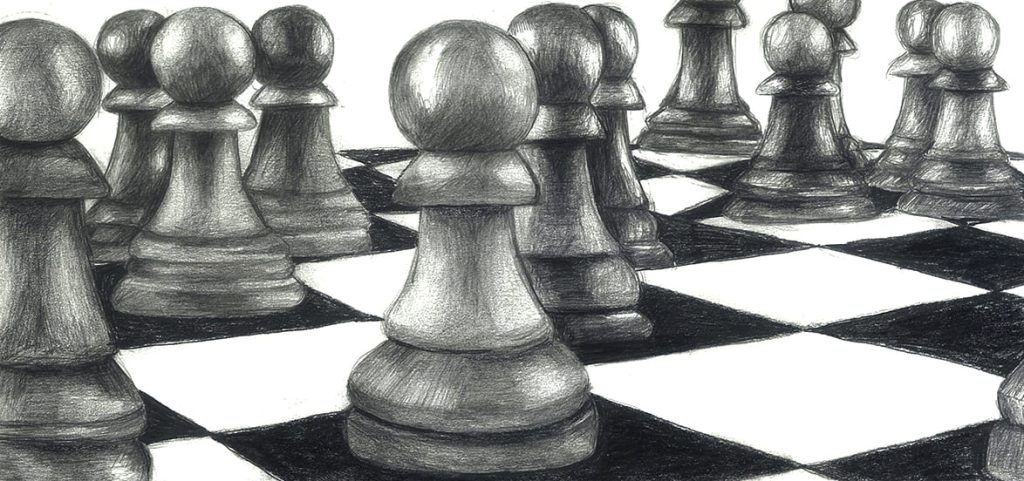
Wealth is naturally unequal. If we try to give everyone exactly the same wealth, the only way is to make everyone poor (communism).
Opportunity is also naturally unequal. If we try to give everyone exactly the same opportunities, the most direct way is to take an opportunity away from some people and redistribute it artificially with rules like diversity quotas. This approach may look like a zero-sum game but it’s actually worse than that… it’s divisive and a drain of resources to implement more complicated rules and enforce them, while preventing said rules’ abuse.
Of course, diversity has a lot of benefits and must be encouraged and invested in. Just maybe not… enforced? It may be just me but I’m not a fan of rules if they are not desperately needed.
Problem one by itself would not be a problem at all. Usually, when we strive for something good and unachievable, the attempt is still largely beneficial. It improves the way things are. If our goal is to bring the number of nuclear weapons on earth down a hundred times and we achieve half our goal, it’s still a great success.
Problem two is that the movement no longer realizes that some of its “equality” goals are disconnected from reality. As the movement itself has grown to a huge system governed by the rules of political systems, the easiest way to shine your light and be noticed is to have a more extreme idea, a progressive one, even for a progressive movement. And while the world does need some radical ideas, others just lose touch with the reality of their real-life consequences.
Because it’s not reality that creates the fringe ideas of the social justice movement. It’s an unhealthy combination of anger/envy, living in a filter bubble, and the natural desire to shine in the movement. And I want to clarify I don’t judge specific people for this.
I do believe oppressed people have the absolute right to be angry and should be, otherwise change won’t happen. I don’t believe there is a significant number of evil masterminds of the movement who want to hijack it for their personal gain (like Stalin and other dictators hijacked communism).
It’s an emergent problem of the whole social justice belief system. No one is to blame but it’s our collective responsibility to fix it.
When our goals are disconnected from reality and what is possible, the disconnection shit rolls downhill. The methods of achieving its noble but often unrealistic goals are even more disconnected from reality. And the language used and cancel culture are counterproductive to making actual progress.
In a classic filter bubble example, the social justice movement is somewhat unaware of how some of its loud statements and well-meant but still freedom-reducing actions look to people outside the movement.
Here is a classic Social Justice example: Slavery reparations in the US
When we analyze history, this makes sense. Wealth is largely generational. Enslaved Black people were horrifically abused, and even if we say that this happened too long ago to do anything about it now, their descendants started with nothing, were segregated to live in poor, less developed and more polluted locations, and thus continued the cycle of unfair suffering. The ripple effects continue until today.
So is it fair to pay something to their descendants from our common wealth pool? Yes, from my point of view, it is.
However, the people who came with the term “reparations” for this show exactly what is so wrong with the social justice movement.
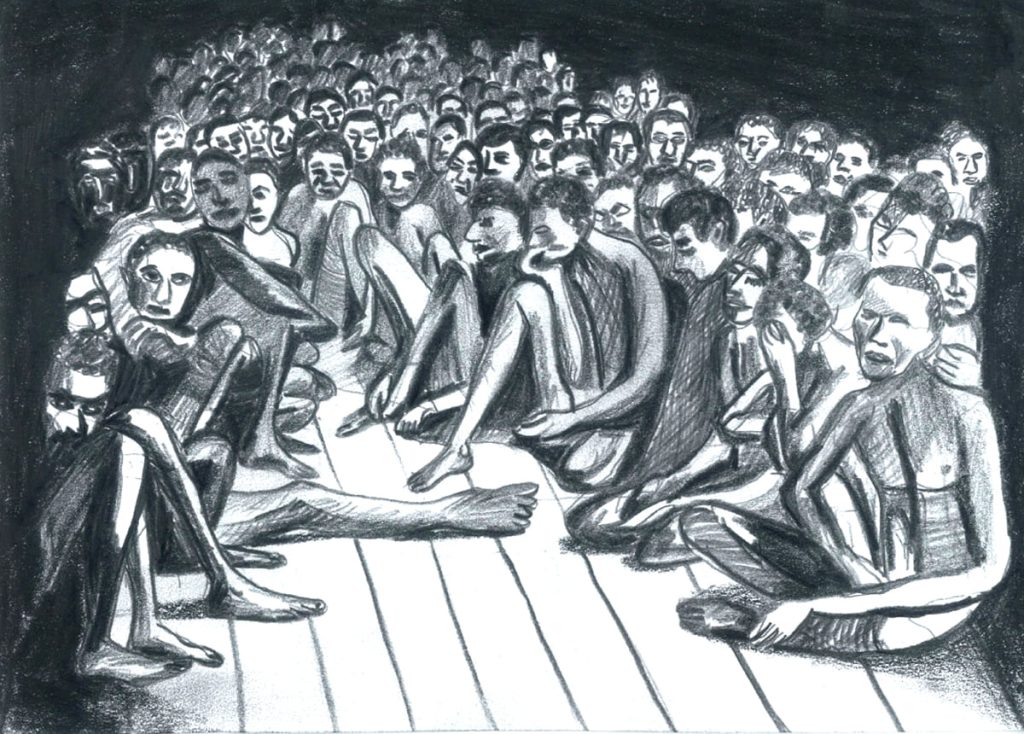
Reparations were historically paid by losing aggressors in wars. Germany paid massive amounts after World War I, World War II and The Holocaust. Whichever group of people made the actual payments were whichever did the wrongdoing or at least allowed it to happen in the same country and timeframe. Reparations are synonymous with guilt.
Slavery happened 150 years ago. Even if a rich evil enslaver in your ancestry tree means you’re likely to be a bit more wealthy today, to talk about modern white people being guilty of slavery is insane.
So it’s no surprise that many white people do not want to hear about reparations because they don’t want to associate themselves with guilt. Also, guilt is not a helpful emotion and should never be invoked without need.
It’s all about branding. If you call it “the investment fund for the future of disadvantaged children,” it’s more or less the same thing.
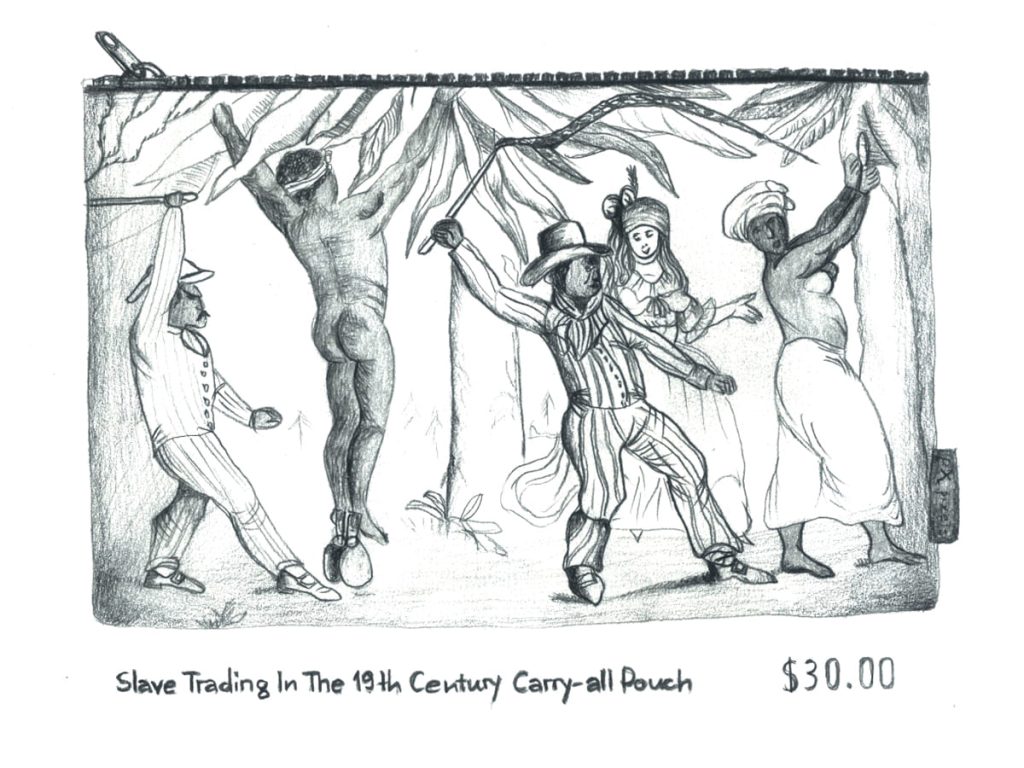
If you want something to happen, give it the best possible name. Not one that will divide people, provide it with one that would unite them.
This is not rocket science. Right-wing populism’s superpower is twisting words. A long time has passed since Hitler blatantly named his Ministry of Propaganda… “The ministry of propaganda. “ In modern times the de-facto dictator of Hungary, Viktor Orbán, names his Anti-LGBT law “On taking more severe action against pedophile offenders and amending certain Acts for the protection of children. “ This sounds much better, right?
The social justice movement is just terrible at branding and thus also terrible at uniting people, leading instead to division and more right-wing extremism.
If you look at history, no one except dictators ever had the rare luxury of not having to be diplomatic. Or not caring what other people think and “canceling” other people.
We are not talking about who is wrong and right here. I’m a staunch defender of feminist ideas, racial equality, LGBTQ rights, and left-wing economics like extra taxes for the super rich, etc.
But ideas are only as good for actual change as our expression of these ideas.
If we go to a wealthy person to ask about money for any good cause, the proper way is to phrase the problem and then ask them “would you consider helping”… Anything more aggressive and guilt-inducing becomes counter productive. People really don’t like when we encroach on their freedom, and I can’t blame them.
Every charity fundraiser knows this psychology, be persistent but not aggressive. There is a line you better not cross, or you lose your listener.
This line is usually not respected in the language publicly used by The Social Justice movement. I’m not saying this is morally wrong or judging it. I’m just saying this is ineffective and only repels and radicalizes most people outside the movement.
And as usual, there is one golden question. Do we want positive change because we want it and want to be part of it or because it will help others?
This is a subjective question and no one can easily answer for themselves. I really want to think I’m creating I Grow Younger for the world. After all, I’m spending a lot of time and money on this without asking for any in return. But do I? Maybe it’s a hidden ego incentive because I feel money is not enough and I also want influence and soft power over the world of ideas? I don’t feel like a power-hungry evil genius, but does that really prove I’m not subconsciously one?
However, we’re not judging a person here or even a group of people. We’re judging a system of people, beliefs and actions.
And for this system, we can answer.
And the undeniable truth is that if the system really wanted to get reparations for disadvantaged black people, the system would not allow this to be called “reparations” in order for it to be more achievable.
Martin Luther King Jr. titled his speech “I have a dream” and not “White people suck.” And his movement got shit done because it searched for common language and allies. Among the 250,000 people who gathered in Washington, D.C. to hear the preacher were a huge amount of white people. Can you imagine Donald Trump fans attending a woke speech in the tens of thousands today? We have clearly lost common ground and language. And Social Justice is one of the major driving factors for this (not to say right-wing leaders and media don’t play a big part too).
But why, why is it so important for the movement that it’s called exactly reparations? Why all the focus on gender pronouns, while unspeakably more horrifying stuff than messing up your pronouns is happening around the world to the LGBTQ? Why do people have to cancel so often?
The uncompromising nature of The Social Justice movement comes from its obsession with equality. It reminds me of the just as unhealthy obsession of right-wing/religious/morality extremists with purity. Because striving for full equality is in a way striving for purity. And purity in a messy world just doesn’t exist. The idea of a pure language, even when a word like reparations is clearly divisive and counterproductive, speaks not just of bad branding. It speaks of the entitlement of those who control the attention market. And entitlement will not find you allies. It breeds enemies.
But who cares about the enemies? We can just cancel them.
Social Justice and Cancel Culture

Everyone has an opinion about cancel culture, and I won’t go into the depths of morality or freedom of speech, why is it right or wrong. In the spirit of this rant, let’s see why it is ineffective.
So, one person says something stupid or offensive online. First, keep in mind that it happens that satiric or “inside joke” words are read out of context (examples in this fascinating article), leading to people being cancelled (and losing their jobs and having their lives ruined) for… humor. Collateral damage is not a great start, but let’s say it’s rare and move to the main case – actual wrong info or offensive language.
Then 50,000 people collectively tell them and the whole world how wrong they are, which is read by another 10 million. Let’s measure efficiency. How many resources are committed, and what is achieved?
The committed resources are huge. So many people’s time, energy, attention and focus are worth millions of dollars of economic value. Or they can put it to a good, achievable cause instead.
What is achieved here? Fucking nothing!
The canceled person is… well, canceled. They will not change their views just because the world tells them to. Probably the opposite.
But maybe other stupid, offensive, wrong people will not pollute the web with their nonsense and we improved the world? I’m sure many in The Social Justice movement believe this. But… is it true? Did the amount of online stupidity and harassment decrease once canceling became a real threat? My observations say no. The canceled people form weird support communities like the incels where radicalization is inevitable. And even if they move off Twitter, Youtube and Facebook and become less visible, their (probably) questionable views are not gone and may only become more extreme and dangerous.
Because canceling is not dialogue. It’s merciless destruction. And I don’t want to judge if it’s deserved or not. The amount of resources allocated to the task of destroying a single person is not worth it.
There is an even worse subcase though – cancelling a scientist. The mere fear of this possibility is hurting science. Today, on this very day, scientists will find but not share actual findings because they are not culturally acceptable. Maybe some of the findings are wrong, but if you’re not incentivized to share, scrutinize and improve, how will we ever know? It’s no longer science if you’re not allowed to share any logical conclusion of your research.
Science works by mentally and if possible and ethical, empirically testing all possible options. If you cannot imagine, state and test things that would make people uncomfortable (including possibly the scientists themselves), it’s not properly done.
Science is already at a growing risk of politization due to the way researchers receive the grants needed to cover their expenses, as well as other factors.
The last thing we need is identity politics pressure on the process of finding the truth.
True science is never racist or sexist or (x)phobic, saying the truth is not a political statement. Scientists are people and may be flawed and biased but the solution to this is leaning even more onto The Scientific Method with high standards such as double blind trials.
Instead, the politization of science by postmodernist-subjective-truth-believing social justice warriors pushes it further away from The Scientific Method and only makes it more political, thus potentially more racist or sexist or (x)phobic. Just let science be science and get out of its way. Here is a great talk on this matter and I’d recommend other Richard Dawkins interviews too.
So cancelling people is bad… but do you know what is a very similar and actually great idea? Canceling companies (similar to divesting campaigns). Because:
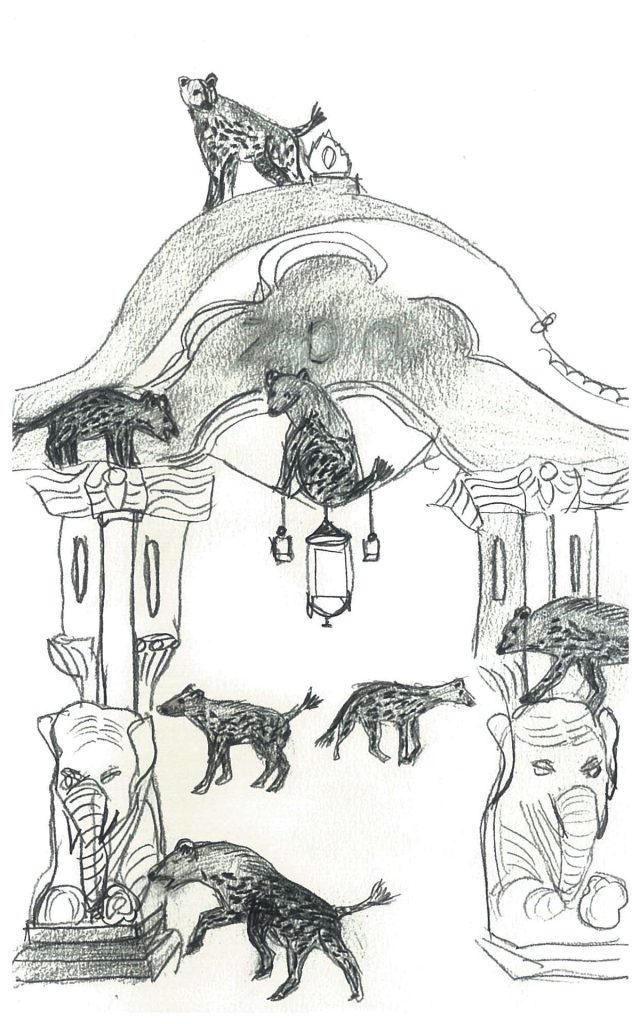
- Companies can actually change much more than people do when faced with an existential risk;
- Companies are not people and can be hurt without it being immoral; If they fail, others will take their place;
- Companies have to maintain a good reputation in order to sell their products and services;
- Companies are relying on banks and investors who may also be touchy about reputation;
- Unethical companies are a big target actually worth the huge effort of canceling;
And while companies have become the target of many viral online campaigns, a lot more resources are allocated to canceling people as it’s somehow more interesting. But this is a wasted and often even counterproductive effort. So target companies instead! Unethical companies or ones with very bad products/services should not exist just because they are established. Destroy them!
So, to summarize, The Social Justice Movement and its goals are justified and very important to society. But the messaging is divisive and sometimes radiates entitlement rather than empathy. This radicalizes people on the other side of the political spectrum. Radicalized people on either side of a debate (even one where the truth is not in the middle!) are a disastrous loss for society, because polarization is directly hurting society, but is also damaging the mental health of the radicalized so we can be sure that they will suffer, make others suffer too and become more polarized in time. Many allies are also needlessly lost and right-wing populists are given the seeds they need for their own sinister self-serving propaganda. I’m afraid with unlimited and almost free AI-generated content available to anyone with modest technical skills, the information war in a divided world can no longer be won for any side, just lost for all of humanity. The only path forward is searching for and finding common ground. Here are some ideas in this regard.
The Social Justice Movement and Wealth Inequality
This is the most effective part of the movement since being poor makes any other disadvantages like race, gender and sexual orientation much worse while being a problem in its own right, including for our mental health. Also, fighting the super-rich abusing tax loopholes and offshore havens is not really controversial, making this the least divisive part of the movement.
While I’m largely happy with how this helps and enjoy listening to Bernie Sanders, Elizabeth Warren and Robert Reich, there is a pitfall some more emotional people fall into.
Remember that the thoughts and words we use seep into our culture and have a power of their own.
If every person in the world thinks that Jeff Bezos and Marc Zuckerberg are evil, expects them to be evil regarding their every action, and would react with distrust if they ever did something genuinely good (ah, they must have a hidden agenda to make themselves even more rich and powerful, that’s all they care about!), do we really give them any incentive to change for the better?
People are not one-dimensional, and their character is not set in stone. Even if I think that Jeff Bezos is not nice and would probably never be, why take away the small chance for a positive change in a human?
Fair critique for acting like a dick is well deserved, but there is never any practical upside to the emotion of hating a human being. Big companies, however, are nothing to feel sorry for, especially monopolies with a proven track record of ruining lives.
So if you have any anger about wealth inequality – target companies, it’s much more effective. A company is a big public target, touchy about its reputation. If they deserve it, hit them hard. And due to their responsibility to their shareholders, companies can actually change rules and practices quite fast if downfall is on the wall.
People don’t develop empathy under hate. But companies develop better rules and practices under scrutiny.
There are many ways to contribute to society by hitting a company that doesn’t deserve to exist. But to hit it with a real impact you need time, resources and freedom. The most powerful tools are divestment and sharing and amplifying well-verified true horror stories about the company’s practices.
Always remember that companies do not exist in a vacuum. Some industries are evil by nature and structure. If you drive a payday loan company out of business, it’s not likely that the vacated market share will go to anyone much better. So you can also target entire industries, including by helping/funding the innovation of alternatives that will kill the whole industry. The coal industry is dying not because of the huge harm it causes to our health and the environment, but because other methods of electricity generation are now cheaper.
So if you want to contribute to wealth inequality, the best way is to… become part of the problem.

If you’re wealthy, you have the means (time, resources, money to divest) to fight wealth inequality. If you’re broke and working two jobs, your contribution will likely be marginal as you won’t have the energy and resources needed.
If you really mean well, it’s moral to become rich, as long as you’re committed to spending your wealth in ways beneficial to others.
Sounds hard? Not really. First you need to leave behind the fear of being a bad person if you happen to have it. Then understand how money works and what you need to build a successful business. All while being in hunter mode as much as possible.
The Social Justice Movement and Feminism
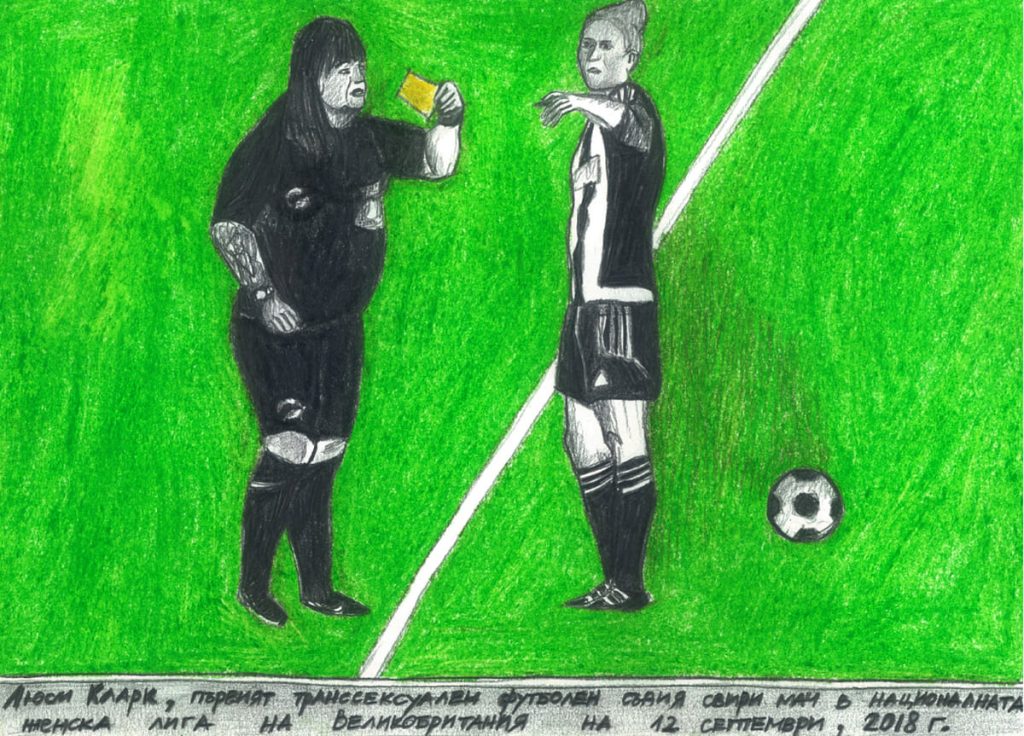
Now we get into more controversial territory. I self-identify as a feminist and have learned to see past my male privilege how society pressures women in profoundly unfair ways – stricter social and beauty standards, not enough financial support when bearing and raising children, cultural patriarchy remnants from the past when women had much less freedom, higher risks of sexual assault and domestic violence… it’s a very long list but everything in it decreases freedom.
Women also earn less money than men for the same work, known as the Gender Pay Gap.
Parents often think that boys can be in hunter mode and play in the muddy puddle as much as they want, but girls should not be as brave.
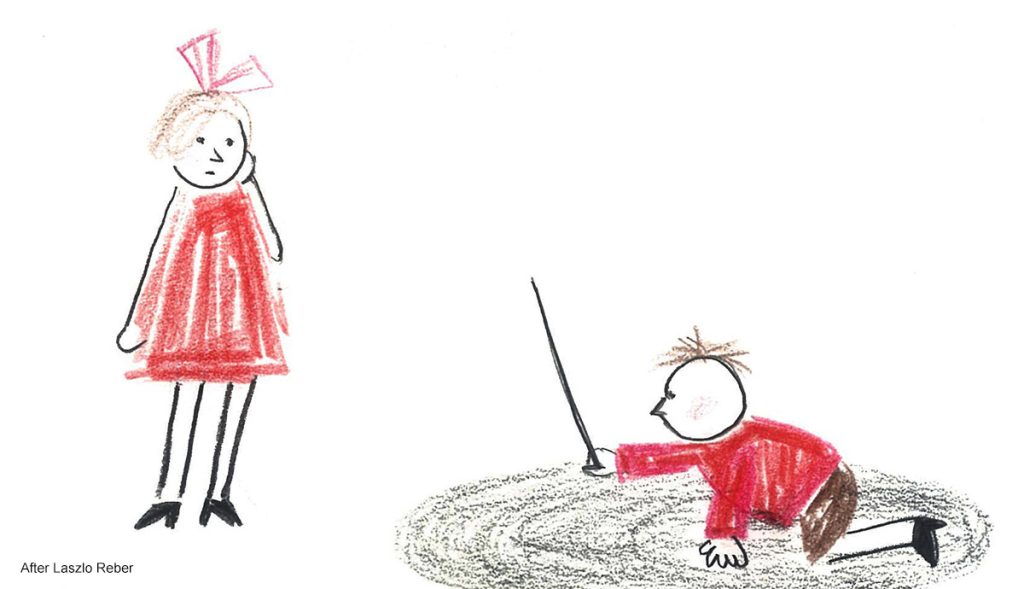
This damage alone is huge in our dynamic world where bravery is needed for success. This leads to fewer women in high-competition-highly-respected-highly-rewarded jobs such as political and corporate leadership and STEM.
Women have less self-esteem in a trust-based, bullshit-tolerant world where the ignorant person who boldly claims to be able to handle a project is chosen over the quiet person who actually can handle it… but doesn’t apply due to self-doubts.
Women are also disproportionately affected by the huge but quite hidden “fear of being a bad person” pseudo-moral problem that reduces freedom and touches every aspect of a human life.
Many extreme feminists blame men for all or at least most of the hurdles women experience. However, I find this neither entirely correct (in developed countries), nor constructive. Let’s see why.
First, every man and woman has unlimited potential.
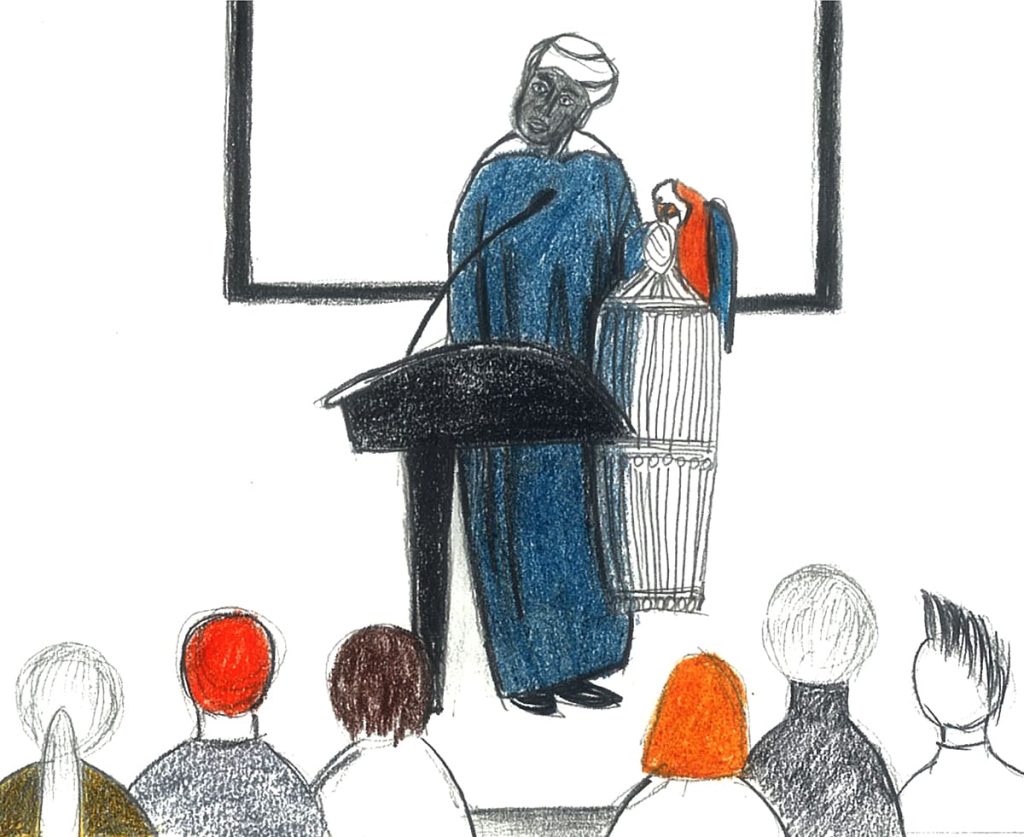
We all achieve a tiny part of what we could achieve if we could make the right choices regarding what brings and keeps hunter mode and what helps us in the underdog fight against the mighty constant force of inertia. If we could change and improve and learn every day, we have such a huge unfair advantage over other people who are stuck 99% of the time that becoming wealthy and successful would be a zero-effort side effect of our life.
The Gender Pay Gap would be much less annoying if we could see the objective truth – most people having a day job are already half-fucked since it’s a dictatorship with limited freedom.
Given the unlimited potential, complaining that you only fulfill 0,00083% of what you can achieve/earn while the man next to you is better by fulfilling 0,001% of what they can achieve/earn is kind of missing the point of what both of you can do with your lives and careers if you get creative and find the motivation to learn, change and improve. I’m not saying it’s not unfair (and if I had a magic wand, I would “fair-it” right now) but life is never fair, and magic wands don’t exist.
What we choose to do with all these unfair situations and how we react to them is the most important thing. If a lower wage and/or unfair treatment motivates you to leave your job for something better, should you be pissed off or neutral, or even thankful? I am thankful for some cases when I have been treated unfairly because it opened my eyes about what I want and how the world works. There is no right or wrong answer here but remember, life always has options… if you look for them. Complaining (even when completely justified!) distracts you from searching for options.
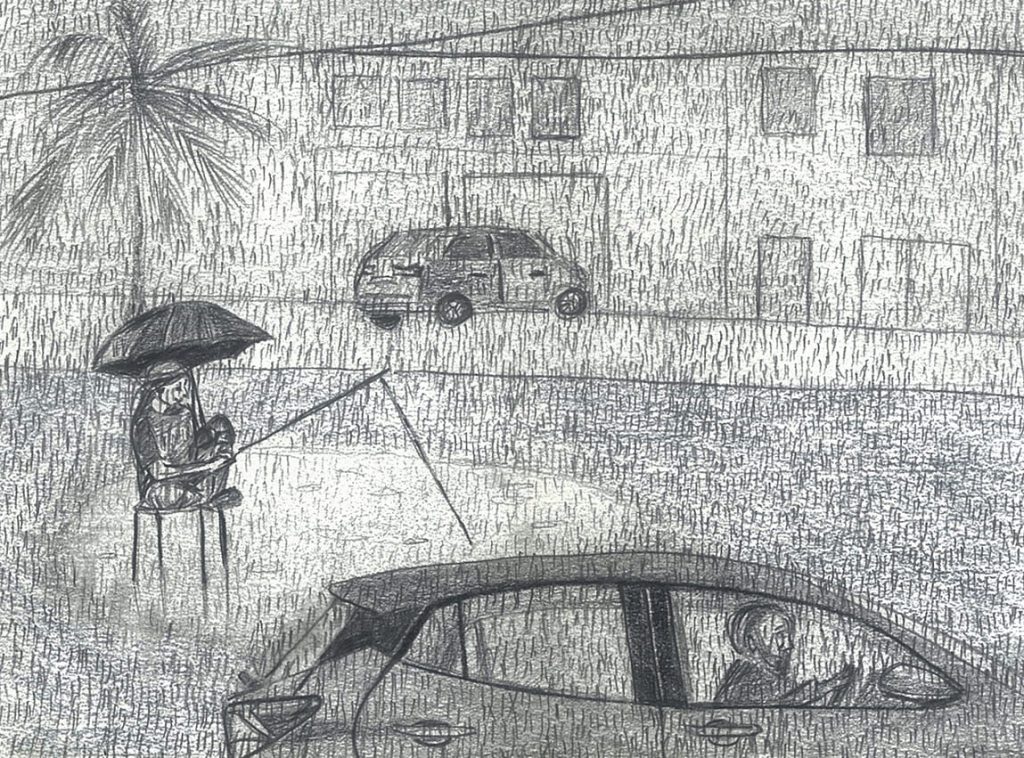
If you dissect other specific problems as we did with the Gender Pay Gap, you’ll find some root problems:
- History, historical distribution of power and wealth and patriarchal culture leading to double standards;
- The way parents raise boys vs girls has led to the fear of being a bad person becoming more common among women. This could also lead to a fear of themselves and their unlimited potential.
I’ll say the political, cultural and religious systems built by men are at fault for history. I won’t argue if women (who are often not their most empathetic to other women) would have built better ones as leaders. We’ll never know. But women are more empathetic in general and can be great leaders.
Leaving women aside regarding big decisions for much of human history was undoubtedly wrong and unfair. Men need to learn that some old ways need to change. But blaming modern men for all past wrongs is not a good path forward. Division won’t heal the wounds. Blame, in general, is not constructive, even when deserved.
Men have girlfriends, wives, mothers and daughters; women have boyfriends, husbands, fathers and sons. We’re definitely in this together.

Let’s talk about this privately with our closest people instead of flaming about the incels on Twitter. Men are quite ignorant about many of the challenges women face and need to hear about them from their loved ones in an emotional and personal way. Then they will understand. This is also how I understood. 10+ years ago, having been rejected by just about any girl I ever liked, it was strange for me to accept that women are having it hard too and I was actually on the privileged side. But some personal stories from a close friend changed this and I opened my eyes to reality. There is no reason for any man not to have this experience.
Meanwhile, blaming men for everything just makes them more defensive in these conversations and prevents actual change.
Let’s fully accept our responsibilities of the present but try not to assign blame for a past not built by us. “Men” is an artificial construct that doesn’t exist. We are individual human beings and change will come one man at a time if we are told about the unique challenges of women, privately and without blame. This is what works! Extreme public messaging only makes the problem worse.
Now let’s talk about the upbringing that teaches girls to be more moral than experimental and more cautious rather than brave.
I think the parents’ gender has less to do with this than their hunter/sheep condition and parental skills. It’s not important if more mothers or more fathers contribute to this. It’s a problem of clueless parents passing their fears and sheep-mode mentality to their kids and more to the girls than the boys.
Blaming parents for being bad parents is not effective. Private, empathetic conversations with no blame involved can help.
And we need a much better education system that stimulates freedom, not conformity. This is even more important for girls.
To summarize, the unfair challenges women face are real and substantial. To improve the situation, we need:
- Upbringing girls to be brave and not have the “fear of being a bad person.”
- Better understanding by men which can only be achieved with empathetic conversations initiated by women.
- A better understanding of our unlimited potential will help women leapfrog career unfairness.
- Forget about blame or we might never improve. Men can suck. It’s not that we want to… we just don’t know better. Show us!
I know this is not a fair mix of solutions. But we’re not the Social Justice Movement here. We’re the Make it Better Movement.
A reality check shows that gender equality is seriously fucked up (mainly by men, I know) and we can’t have justice and progress at the same time.
And I choose progress, because women are amazing and they deserve it.
The Social Justice Movement and Race
Racism, unfortunately, exists all over the world. But given its history of slavery and then segregation of the black population, in the US, we have a typical example of race as a historic root of inequality that perpetuates to this day. On the other hand, the growing Hispanic population has a hard time with the rather sluggish immigration policies of the United States which keeps millions of people in a state of insecurity and often, poverty. We call all of this systemic racism.
On an individual level, racist people exist as well. Humans biologically have higher trust in individuals that look and behave like them.
But instead of building understanding and tolerance as we grow, the problem is often largely amplified by culturally absorbing racism from our environment, including:
- Older people (potentially already dead) who lived in a more racist past and gave us biases;
- Right-wing populists like Donald Trump, who exploit race for political power, and the media that supports them;
- Other contemporary racists that the previous two options already created;
All of this results in almost all white people having at least some implicit bias which we can explain with all of this influence getting into our subconsciousness. So even well-meaning people can make racially motivated decisions.
As a result, wealth and opportunity are not equal for white vs black/Hispanic people. Although the world is naturally unequal, the color of someone’s skin should definitely not be the deciding factor. So what can we do about it?
There are two logical approaches:
We can try to ignore race (Racial color blindness) and focus on helping disadvantaged people based on class instead, like offering poor students a college scholarship. This TED talk is a great introduction to this approach. I like it because it’s a simple, safe way to improve in a messy world where many actions have unintended consequences.
Or we can do more than ignore race and take proactive action to prevent any possible racial injustice. This is known as Affirmative action. Most followers of the Social Justice movement are supporters of affirmative action, not just in regard to race but also gender. An example is preferential treatment of minorities in college or job applications. Here is one example that triggered a case that went up to the Supreme Court.
Since the situations where Affirmative action may or may not be the answer are very diverse, let’s break them down.
Moderate affirmative action in personal decisions is great if no one will ever know they lost the opportunity. For example, if you have free time and want to mentor someone young, why not choose a person disadvantaged by race? Since there is no official application for your voluntary mentorship, the person you did not choose to help will never know they were ever an option. No bad feelings, division or racial animosity is generated. Also, this makes sure your implicit bias is overridden.
But the bigger the decision, the more official the process becomes, the more justifications you need to provide, and the more the people not chosen will be very unhappy if they knew race played even a small role.
At the worst extreme, creating any rule based on affirmative action is a powder keg. You may expect people to understand but being on the losing side of even a small injustice (or a perceived one) reveals a very dark, primitive side in almost all human beings. Anger, when treated unfairly, is built into us at such a deep biological level that even monkeys show the same behavior in experiments. You cannot change biology. You can only listen to it.
From a purely structural standpoint, affirmative action rules in their more extreme modern variation (also dubbed positive discrimination) violate my understanding of how time and culture work. You cannot solve a millennia-old cultural problem with a simple rule like a quota and not expect any collateral damage. This is not how the world works. Turning a blind eye to consequences not traceable back to you, the decision maker, does not mean they don’t exist.
And in practice, affirmative action that goes beyond racial discrimination prevention makes white people very angry. So angry that they are willing to share it and make their peers angry too. With all the sharing truth gets twisted into a more ugly version, leading to the illusion in some people’s minds that there is a political war waged on the white race. And this feeling of being cornered gives fuel to dangerous white supremacy movements. Of course, populist politicians never miss the chance to add fuel to this dumpster fire.
Here we come back to the problem of entitlement. A college board might not care about the angry white people that they generate with their well-meant attempts to support the black minority. They are entitled enough to think in purity terms (Social Justice above all), ignore the unpleasant part of reality, or look at the partially manipulated angry white people from a moral high ground. But reality is reality and doesn’t care about moral high grounds. It always returns to slap purists in the face.
Angry people benefit no one and certainly not the group their anger is focused on. I’m sure we can do better.
Why am I writing this when cases of extreme affirmative action are still quite rare? Because in half the public’s eye, they are not rare. Every fuckup like the Covid restaurant relief fund preferential policy is publicized on just about every right-wing media and Twitter account, amplifying the dangerous social division in the US. We just lose too much of our collective social capital for a small potential gain. So let’s stop doing it. The place for brave affirmative action is in our private decisions, not public policy.
Here is an analog to finalize the picture.
If Racism is Climate change…
Color blindness is reducing our emissions (slow but effective, the long-term solution)
Private affirmative action is installing a solar panel on your roof (slow, effective, you can’t really overdo it)
Public affirmative action is Stratospheric aerosol injection (fast, nuclear option, you can overdo it, unforeseeable side effects). Crucially, people and corporations will stop caring about reducing their emissions.
And this is how affirmative action can degrade the foundations of color-blindness and send us to a worse place than the one we are already in.
Again, we didn’t come to a completely fair solution. But in reality, total fairness does not exist. Color-blindness is a slow approach which means more injustice will be experienced in time. But I prefer to get there in the end and not risk making everything worse. Reality cannot be ignored.
The Social Justice Movement and LGBTQ
Another key area where the movement has done great work is regarding equal rights and better understanding for everyone with a different sexual orientation or gender expression. Important issues that were taboo for centuries are now finally mainstream.
The LGBTQ were historically oppressed, thousands were systematically imprisoned and murdered during the Holocaust and many more experienced harsh discriminating policies and hate crimes without consequences.
The big invisible crime was that tens of millions of human beings had to live in fear and hide their true feelings and identity just because they were different in just one of the many regards of human life. A personal regard which shouldn’t really concern others at all.
Developed countries have come a long way since, with most people today being more educated and much more tolerant of the LGBTQ. This gives many gay, trans and queer people the freedom to publicly express themselves for the very first time in history, ever. As they have no experience handling this freedom and the joy that comes with it, they can be loud and expressive – drag shows, Pride parades, etc. Many conservative people consider this a deliberate provocation, targeting values like family, and think LGBTQ people want to tear traditional society apart. This is not how I see things though.
I have many gay friends. They are just… people like the rest of us. There is no major difference. They were different regarding who they fall in love with. They want to find the right person and have a family, just like us.
A lot of people (this was the case for young me too) don’t get to know any openly gay people and just listen to their homophobic friends tell shallow gay jokes. In such an environment, it’s easy to forget that gay people fall in romantic love like all of us rather than just having gay sex. Love is a good bridge for empathy between people, so let’s start there: gay and trans people fall in love in ways just as beautiful and you should never forget this all-important aspect of their humanity.
As we discussed in the love post, it’s hard to choose who we fall in love with. As gay people may fall in love with a straight person, they have a much higher chance for one-sided (unrequited) love, especially when being young in school, surrounded by almost entirely straight peers. Combine this with the shock to realize that you’re different, then the anxiety of coming out to your parents and friends… It’s no surprise that mental health problems are much more common among gay youth. They are born with a hand just as beautiful but much harder to play.
It may seem strange to straight people to have educational material about LGBTQ issues early in school. But gay kids go through the unique challenge of being different and even more confused than a kid already is. A lesbian friend of mine said she didn’t know “what she was” till she was 18, despite clearly having crushes only on girls in school. She just didn’t know “lesbian” was a thing, it was so taboo in her conservative family and environment to talk about such topics that they were never discussed, not even once. In many countries and conservative corners around the world things are still like that. About 5% of all people are LGBTQ. That’s way too many to be left behind.
And don’t worry, learning that gay people exist (which, for the record, is true and they will learn it at some point) won’t make a single straight kid gay. This is not how it works. If you wonder what makes people gay, it’s complex. There is no single “gay gene”, but science is highly in favor of the theory that once a baby is born, sexuality is pretty much set in stone.
Of course, for bisexual people, it may seem changing but this is exactly what bisexual means. Many guys and especially girls learn they are bi later in life.
If you’re straight and don’t trust science on this, here is the best question for you: When did you choose to be straight?
Exactly.
And who would choose to be gay if it was a choice??
Harder life, discrimination, hate and reducing the pool of your potential partners 20 times… for what upside? People are irrational, but not that much. The social pressure is clearly in the other direction.
So proper education on these topics is important and even if it creates some division among parents, kids are the future and they are ultimately more important, let’s do it.
What about the gay Pride parade? Isn’t this a provocation of family values? What if I don’t want a sexual revolution?
Don’t worry. I’ve been to Pride recently and I can tell you when you go there the vibes are completely different than when you watch it on TV or read news stories about it.
Pride is not about politics and is not trying to force gay culture on straight people. It’s a celebration. A big party with music and friends and self-expression. And it’s all about freedom, the freedom to be yourself. Imagine it a bit like the hippie movement of the 60s – people celebrating their newly found freedom in ways others find strange. However, given the historical suffering of the LGBTQ and the harder life paths of people in it, when they come out, regain their self-love and find a like-minded community, it’s definitely worth a celebration. I don’t care how many people are offended by Pride. Banning it would be so demoralizing to the LGBTQ community and simply so unfair that even the practical side of me, that normally ignores fairness, has to say: The Pride has to stay.
Trans people are harder to understand. I was having a tough time grasping how you can feel what they feel. But eventually, I found someone who explained it well enough. Abigail is amazing, and you should definitely check out her Youtube channel as a great example of non-divisive, highly educational Social Justice communication.
So what if you think LGBTQ people are a threat to society? Just bring all the empathy you have to the table and get to know individual people. You’ll find out they are just people like you and me. And they have been through a lot. And after some conversations, you’ll feel why they need the Pride.
While I’m very happy about all the progress made on LGBTQ rights, after the movement achieves important milestones like marriage equality, it starts focusing on less important issues… searching for the pure equality I’m so critical about.
In this case, similar to extreme feminism, touch with reality can be lost.
In developed countries the movement publicly obsesses about gender pronouns which I’m, of course, for (everyone should be called how they like, duh), but this is not an issue big enough for the discussion space it now occupies. The pronoun saga overcomplicates everyday matters, contributes more and more to animosity towards trans people and is not a constructive way to go. It would be much better if everyone just scaled down the pressure on using a non-offensive word that, even if accidentally gotten wrong, was not meant to mean harm.
Having to walk on eggshells in everyday conversations contributes to everyone’s anxiety in an already anxious world.
And if you force 99% of the population to make any effort so 1% of the population don’t accidentally get their feelings hurt by a word that is not offensive or intentional, trust me, you’re playing with social fire.
Others litigate custom wedding cake orders to The Supreme Court, while in many parts of the world the LGBTQ face violence and death sentences.
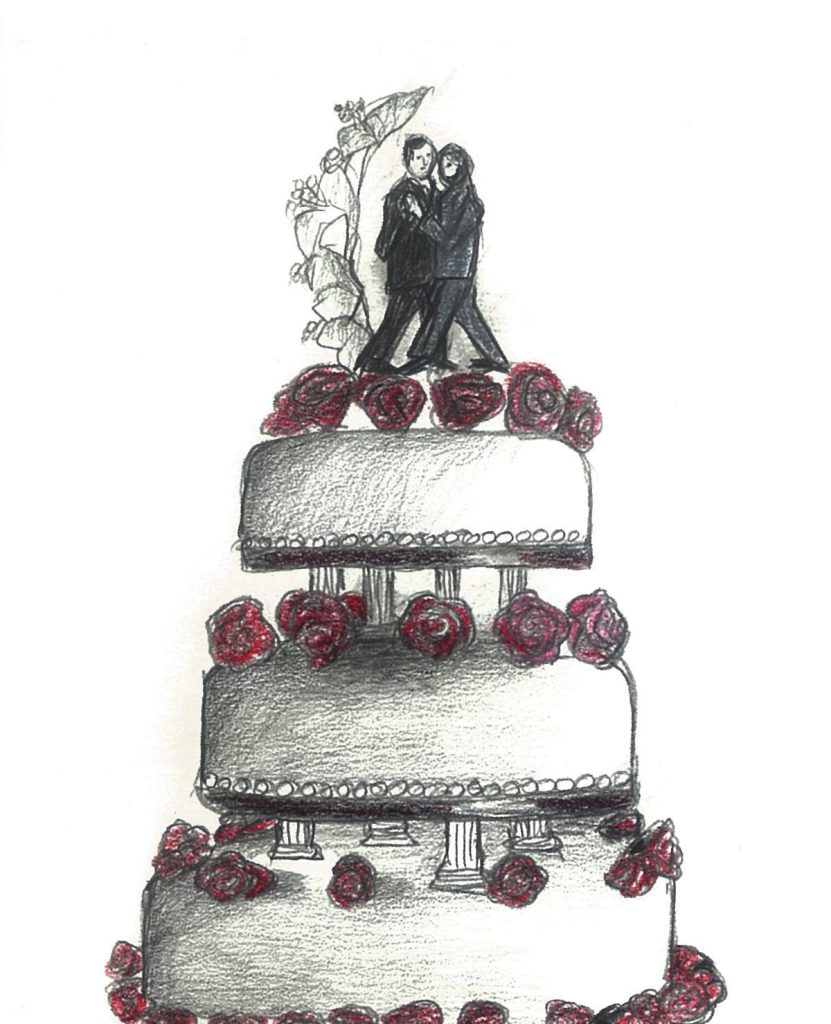
And even if most gay people there manage to hide under the radar and survive, having to live your life in fear, hiding your true identity, is completely incompatible with happiness and leads to severe mental health issues. This is a life and death issue. The custom wedding cake and the pronouns matter, but not for life and death.
And if we really cared for the people with life and death issues, we wouldn’t be triggered by pronouns and wedding cakes.
Let’s have perspective and use our energy and resources where they are most desperately needed.
The Social Justice Movement and Representation
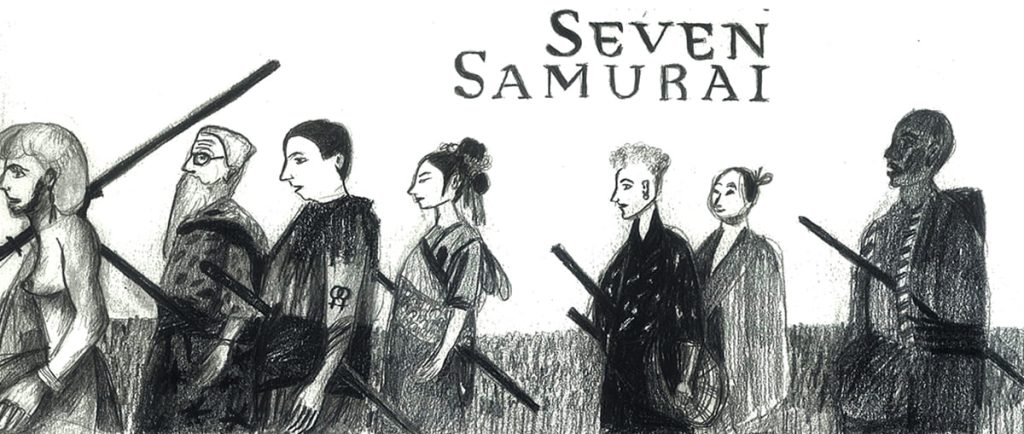
What about the representation of women, black or LGBTQ people in art, movies, books, etc?
This is a hot topic but it seems like a waste of time for me. Can we just agree the answer is “whatever” and let creators create art? Whether a character is white or black usually neither makes a movie better nor worse. From a practical standpoint it’s good for disadvantaged people to see that others like them can be protagonists and matter in popular culture. There are countless real-life stories to support the importance of this. If it feels forced to have a gay dude in a mainstream Marvel movie, remember that gay people are about 5% of the population but have a very small percentage of lead roles. We cannot just ignore their existence forever. The first time may feel a bit weird because it’s a change from the old norm, but eventually, we’ll all consider it normal.
I see that this also makes some people really annoyed and increases racism and homophobia in them. But it seems too important not to ever happen. Of course no one should put up a measuring stick to check if the share of gay dudes in lead roles is as much as their share among people in society. Art cannot be planned and any type of pressure on it is extremely damaging. There should be no pressure either way. People on either side honestly just care about this way too much. Unfortunately the arts are not my strongest field so I’ll leave to creators any potential ideas about how to make diversity in arts less triggering. And from a practical standpoint we should never forget it’s in the interest of disadvantaged people not to cause additional animosity.
The more specific case of taking a white character from history or a book and casting them black in a movie seems to just be oh-the-world-is-ending-crime-against-humanity for many people. I see this as an overreaction by folks who hate because they can’t think of anything better to do, but it’s the reality and we should consider the consequences as they are. It’s probably not always the right choice to poke the racism beast with a stick just in order to make the right point on the political checklist. We should strive to relieve art from political pressure, not attract it by turning too much of it into a mainstream political statement that everyone has already seen and heard thousands of times – it’s simply not original.
Why The Social Justice Movement may be a bigger problem than you think
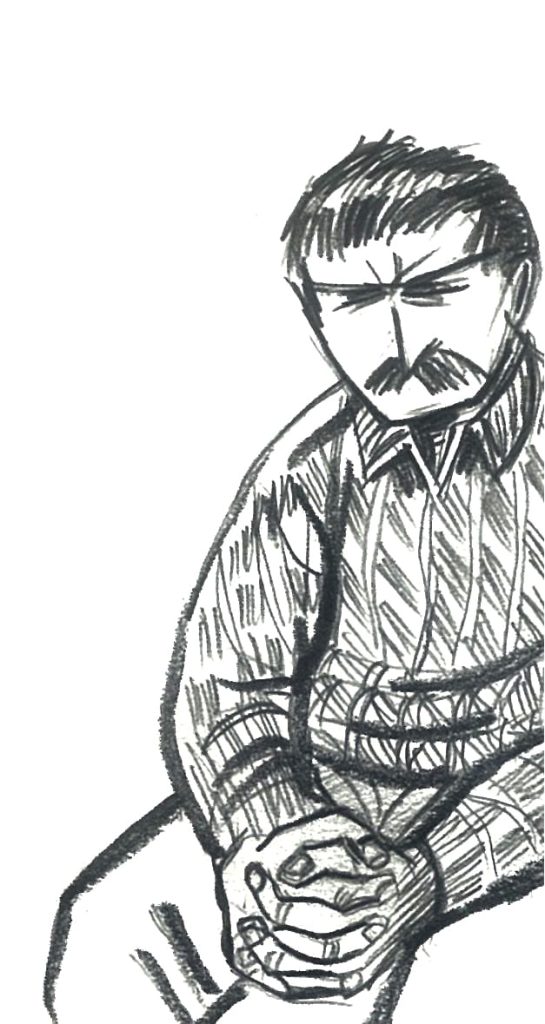
If we look at the bigger picture, massive social unrest is one of the most serious threats to humanity. Many countries in the past, where young men were angry, descended into anarchy or civil wars with terrible consequences for the whole country and its people .
Social division is the first step to this (not very likely but also not impossible) future. The Social Justice Movement needs to acknowledge that it’s causing a lot of anger with some of its messaging. And that undeserved anger is still anger. Justice will ultimately fail everyone if angry people with guns take to the streets. And while this may seem unthinkable in the modern age, no one expected the French Revolution either. Or January 6th, 2021. A growing number of people are so angry in their filter bubble that they want to see the world burn.
In terms of ideas, rights and the fight for spreading information and getting attention, Social Justice is making a lot of progress. But this comes at the price of radicalization of the ones we blame or leave behind because they don’t fit a marginalized identity. Right-wing populists like Donald Trump capitalize on the division to attract these angry people to their electorate and further galvanize them. History will hopefully regard this as a crime by selfish politicians, one with dire long-term consequences for the wellbeing of society. But today, it’s our reality.
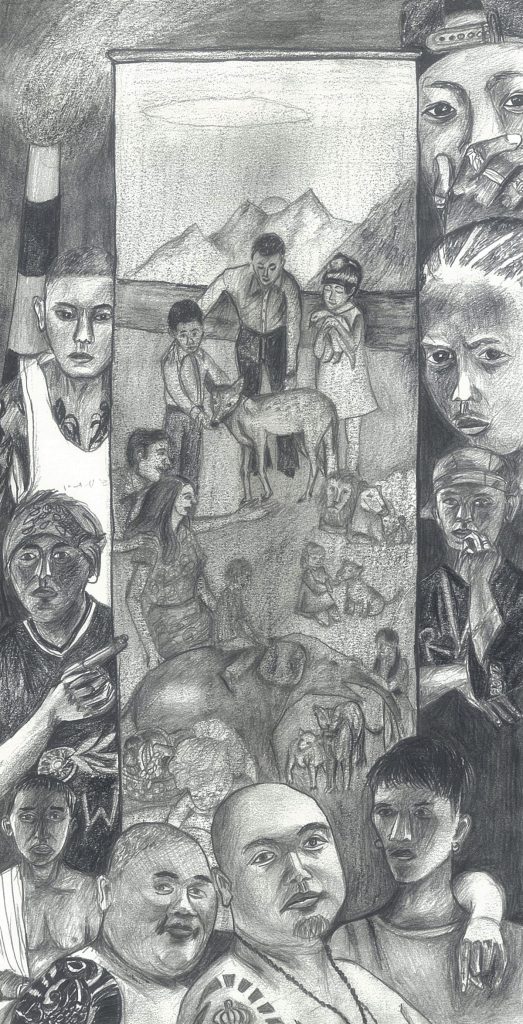
I know this may come as a surprise to most in the movement but… many white men have the dangerous feeling of being cornered and attacked from all directions and they just want to take their gun and make a last stand. It doesn’t matter if it’s truth or fiction; if it’s true in their heads, it’s their reality and they need dialogue and help. Blame will not help!
Many of these men are objectively privileged and have extreme views resulting from division and right-wing propaganda, but others are poor and it would be wrong to call them privileged just due to their gender or skin color. They are fighting decreasing jobs, evil corporate employers and rising costs of living and feel not just threatened but also abandoned by the country they live in. Affirmative action quotas and other real or perceived injustices make these people feel extremely angry. This is not the way to go. Reality has to be more important than equality in its impossibly pure form.
Let reality guide us.
I understand that The Social Justice Movement is a huge fluid diverse behemoth and cannot just change overnight.
Actually, it cannot change at all since it has no guiding rules and principles apart from the main one that, if followed mindlessly, causes trouble – The insistence on equality at all costs. There is no constitution to change or mechanism for clearly ostracizing extreme-to-the-point-of-being-harmful followers. There is no law and no police. Just emerging political and social forces that sometimes don’t incentivize the best course of action.
This means that the people in the movement bear extra personal responsibility.
Everything you say, write, post or share becomes a part of one of the most influential movements in world history.
And if you Tweet shit like this, you’re not helping women or anyone.
There’s no wrong way to be a woman.
There’s no wrong way to be a woman.
There’s no wrong way to be a woman.
There’s no wrong way to be a woman.
There’s no wrong way to be a woman.
There’s no wrong way to be a woman.
There’s no wrong way to be a woman.— UN Women (@UN_Women) February 7, 2021
The platform also matters. Twitter and other short-form environments are structurally divisive and attract many trolls of the worst kind.
So every time before you post, why not pause and ask yourself three questions:
Is my post an objective statement? Am I at least 99% certain it’s objectively true?
If so:
Does this post add valuable ideas or insight not already popular on the Internet?
(If it truly does, post it no matter the answer to the third question)
If it doesn’t add a unique perspective, ask a third question:
Will this post have a uniting or dividing effect on society?
If it’s uniting, post it. Otherwise, don’t.
If UN Women had asked the questions and answered them honestly, they would not have posted this.
Society cannot handle more division. If you want to be a trailblazer, be a uniting one. We need them. We need you!

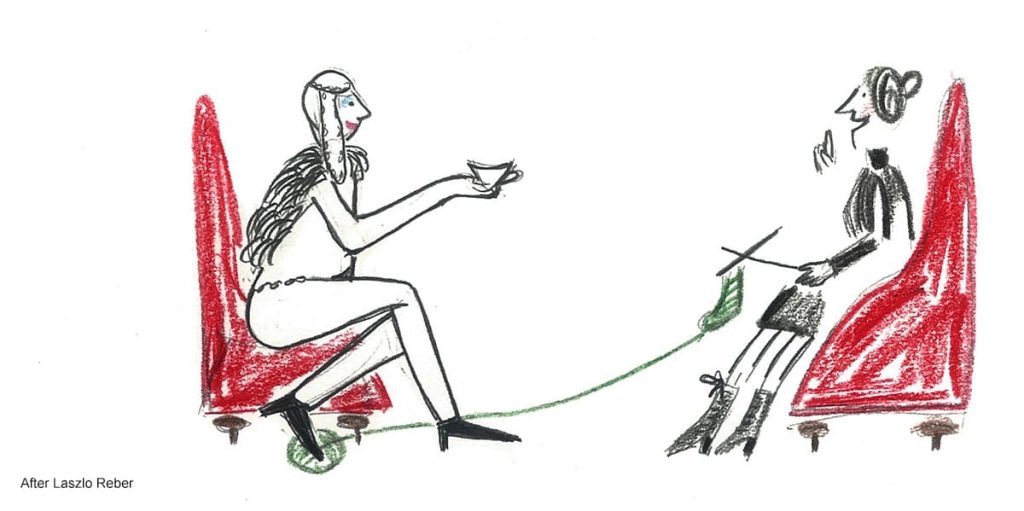
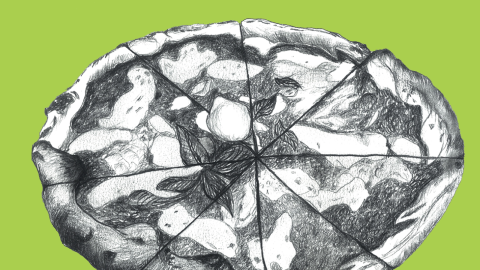
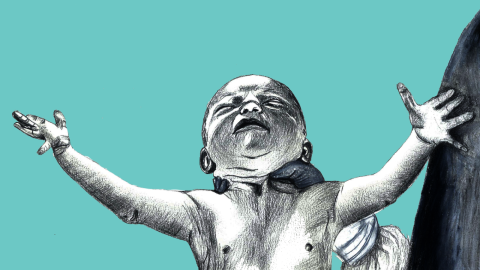
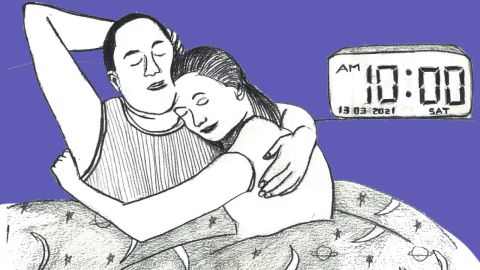
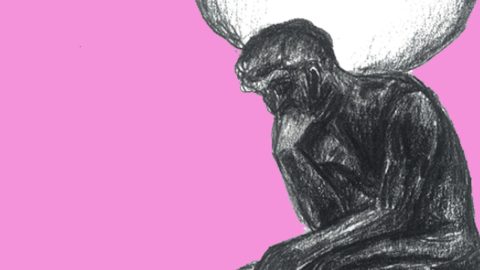
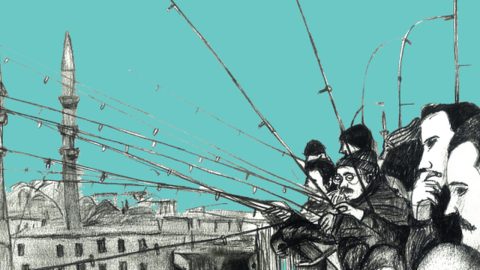
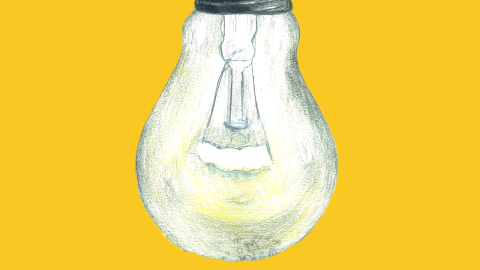

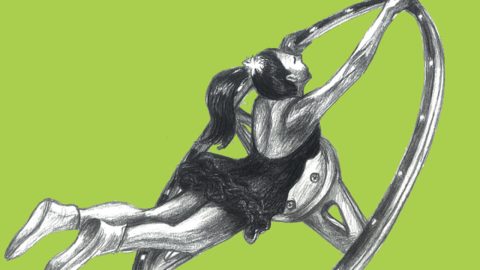





















What an amateurish piece of junk. Go to college, sign up for a political science course if you really want to know.
Is this where they taught you these terrific commenting skills 🙂
There is no such thing as “99% certain”. You are either certain (100%) or not (anything less than 100%). Can you be certain that something will happen if there is a 99% possibility for it? Can you bet your life on it? What if you are wrong this time only – you will lose your life. You are not certain. You are guessing with a very high probability. These are two completely different things.
You could really help yourself by reading https://i.gy/out-of-the-box-thinking/ – your way of thinking will not bring you to the truly valuable things in life (for you). Your (left-brain) way of thinking is good for the tribe and this is why it evolved. I don’t want you to sacrifice your happiness for the sake of being right.